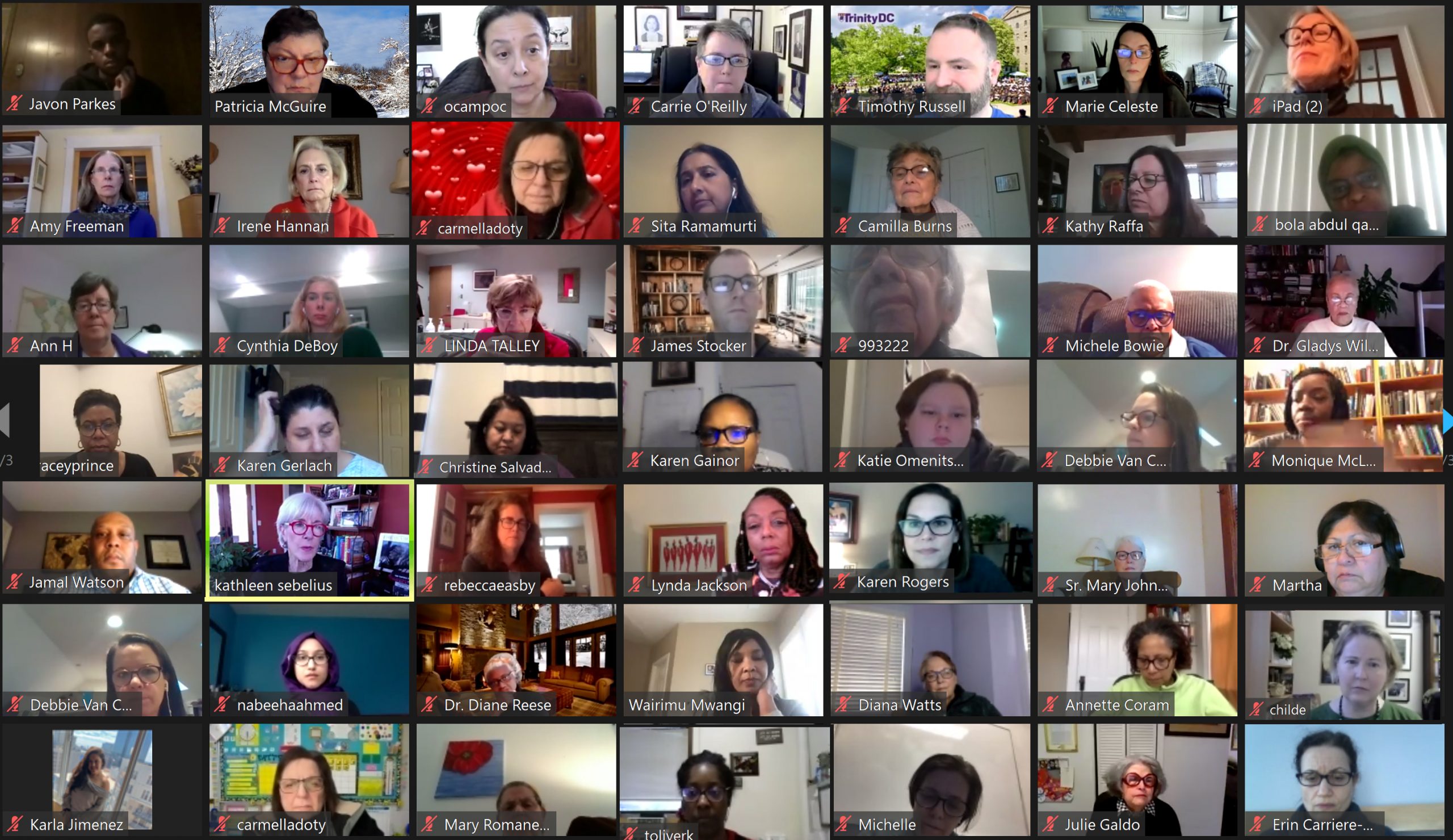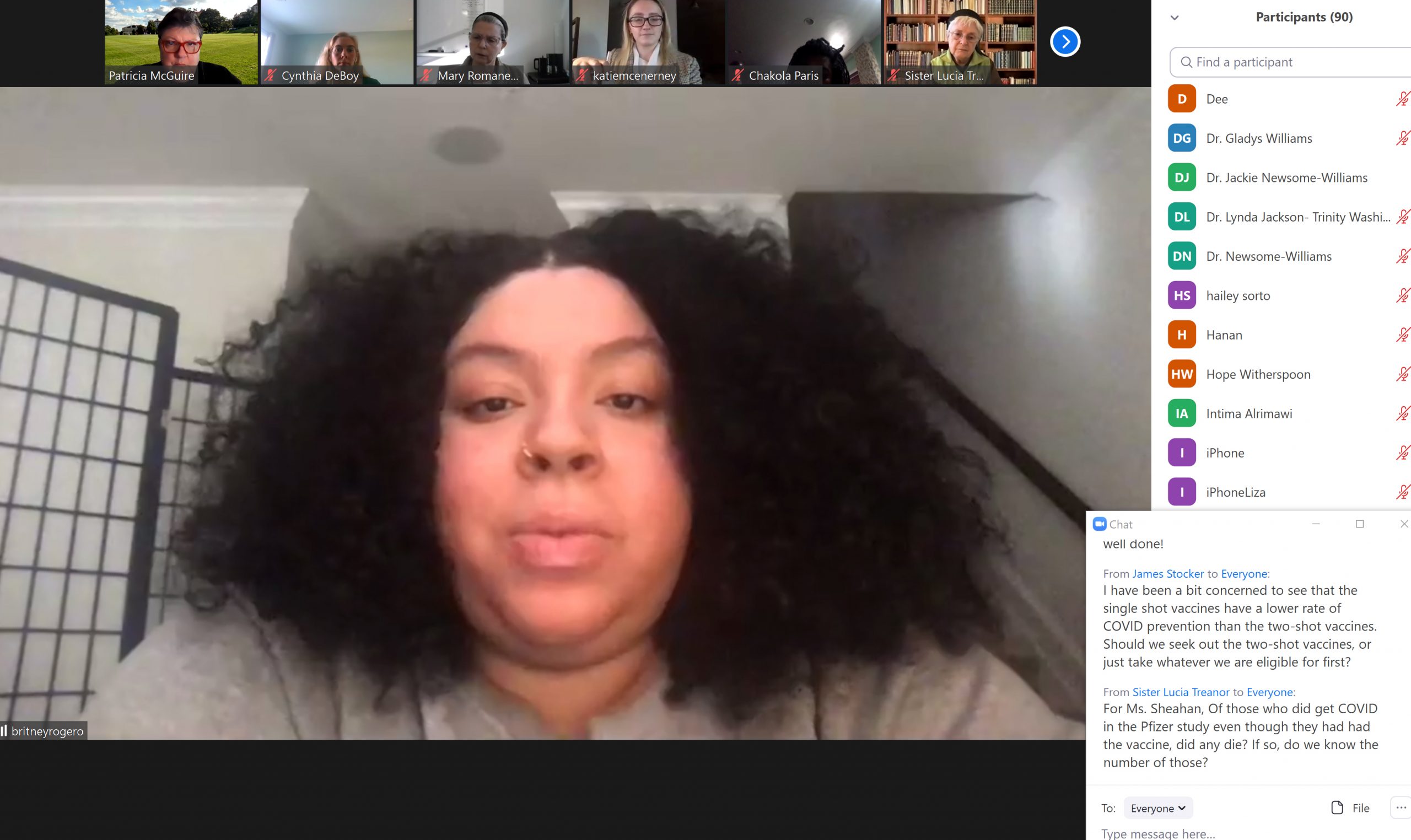
One Year On, Searching for Solutions
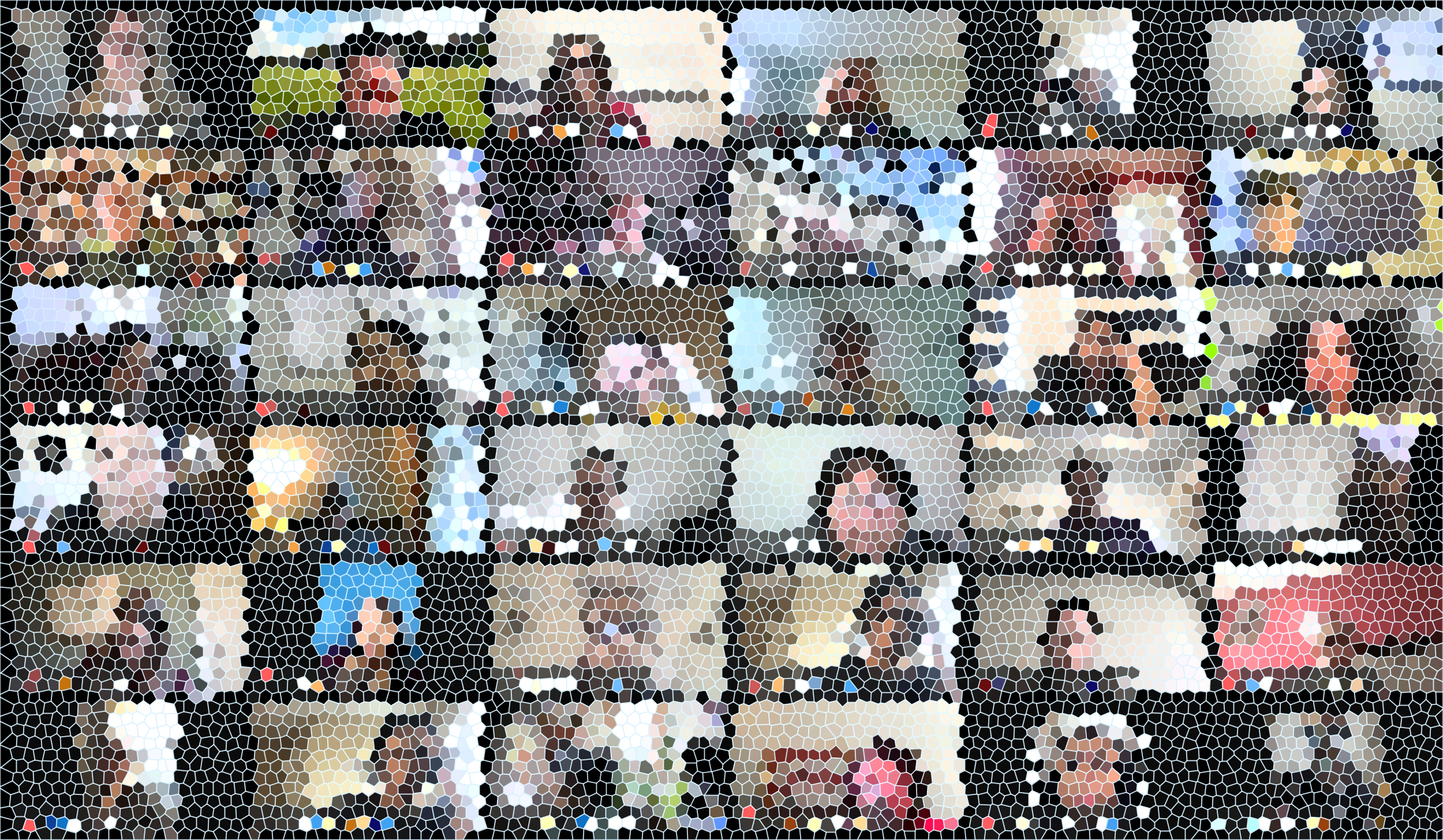
One year into the Covid-19 pandemic, we continue to search for solutions. Our days are streaming endlessly — on zoom or Microsoft Teams or Webex or countless other platforms designed to bring us together but somehow reminding us relentlessly of the ruthless separation the virus imposed on all of our lives. We have gainfully moved ahead, making the best of this saga of sorrow and loss and so much struggle; but we long for the days when we can come together again, closing down those screens and opening up our arms to welcome each other back to real life together.
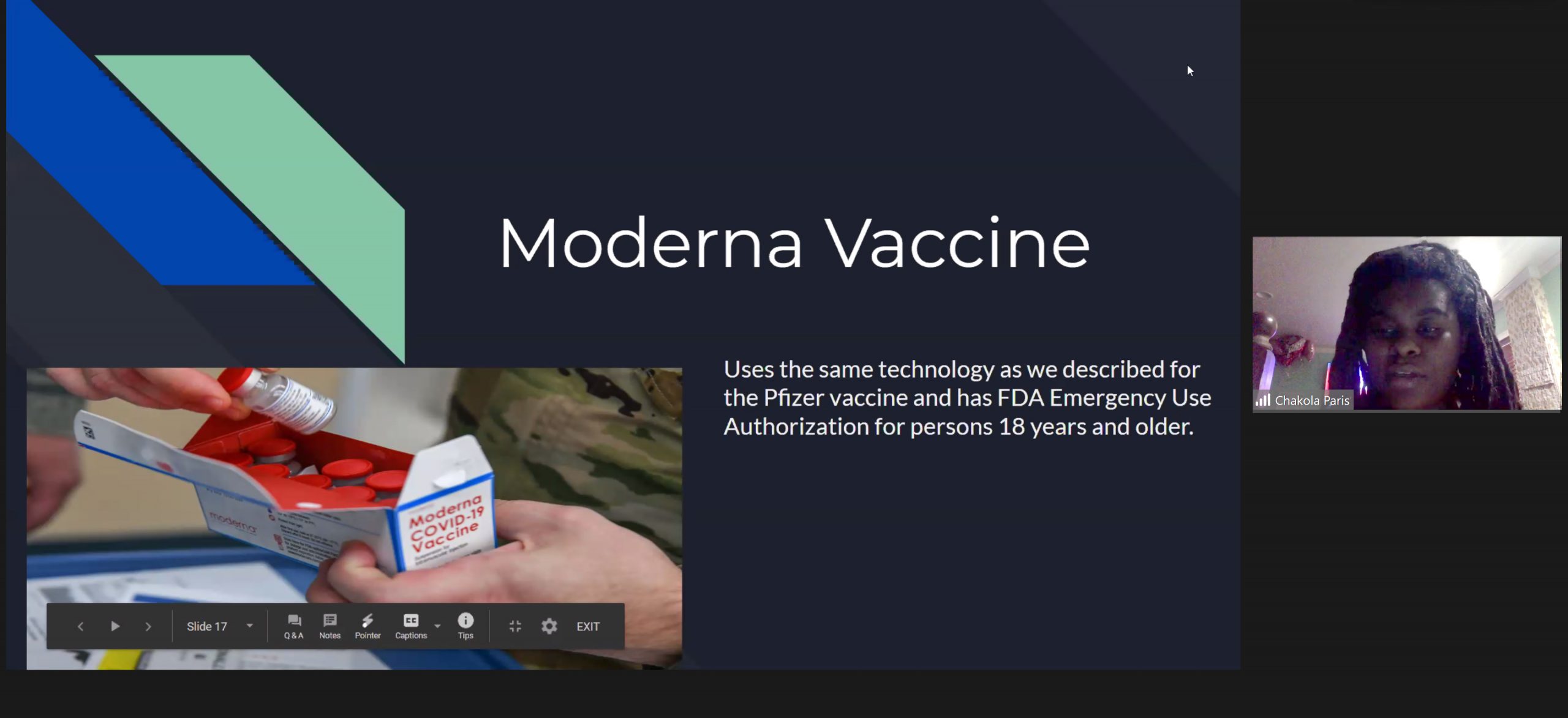 We will not enjoy that moment, however, until we are sure that we have defeated coronavirus effectively. And in this battle for health, for security, for the restoration of normalcy, the availability of vaccines is our most important, essential and effective permanent defense. Wearing masks, staying socially distant, washing hands and checking symptoms daily are all necessary defensive actions; but ultimately, to defeat this scourge, we must accept the vaccines that will eradicate the disease.
We will not enjoy that moment, however, until we are sure that we have defeated coronavirus effectively. And in this battle for health, for security, for the restoration of normalcy, the availability of vaccines is our most important, essential and effective permanent defense. Wearing masks, staying socially distant, washing hands and checking symptoms daily are all necessary defensive actions; but ultimately, to defeat this scourge, we must accept the vaccines that will eradicate the disease.
(Microbiology student Chakola Paris discusses the Moderna vaccine, above)
Certainly, I understand that there is some reluctance to get the Covid-19 vaccine. The awareness of history fosters suspicion — the ways in which African American men were used and abused as subjects of the Tuskegee Syphilis Study is one example of the horrific consequences of racially invidious behaviors in the healthcare system. The speed with which the vaccines came to market in the waning days of the Trump Administration also foster suspicion and rumors abound. The plain fact that the Covid-19 pandemic has had the most severe consequences for Black and Latino persons also provides unassailable evidence of the chronic racial and ethnic disparities in healthcare in this nation.
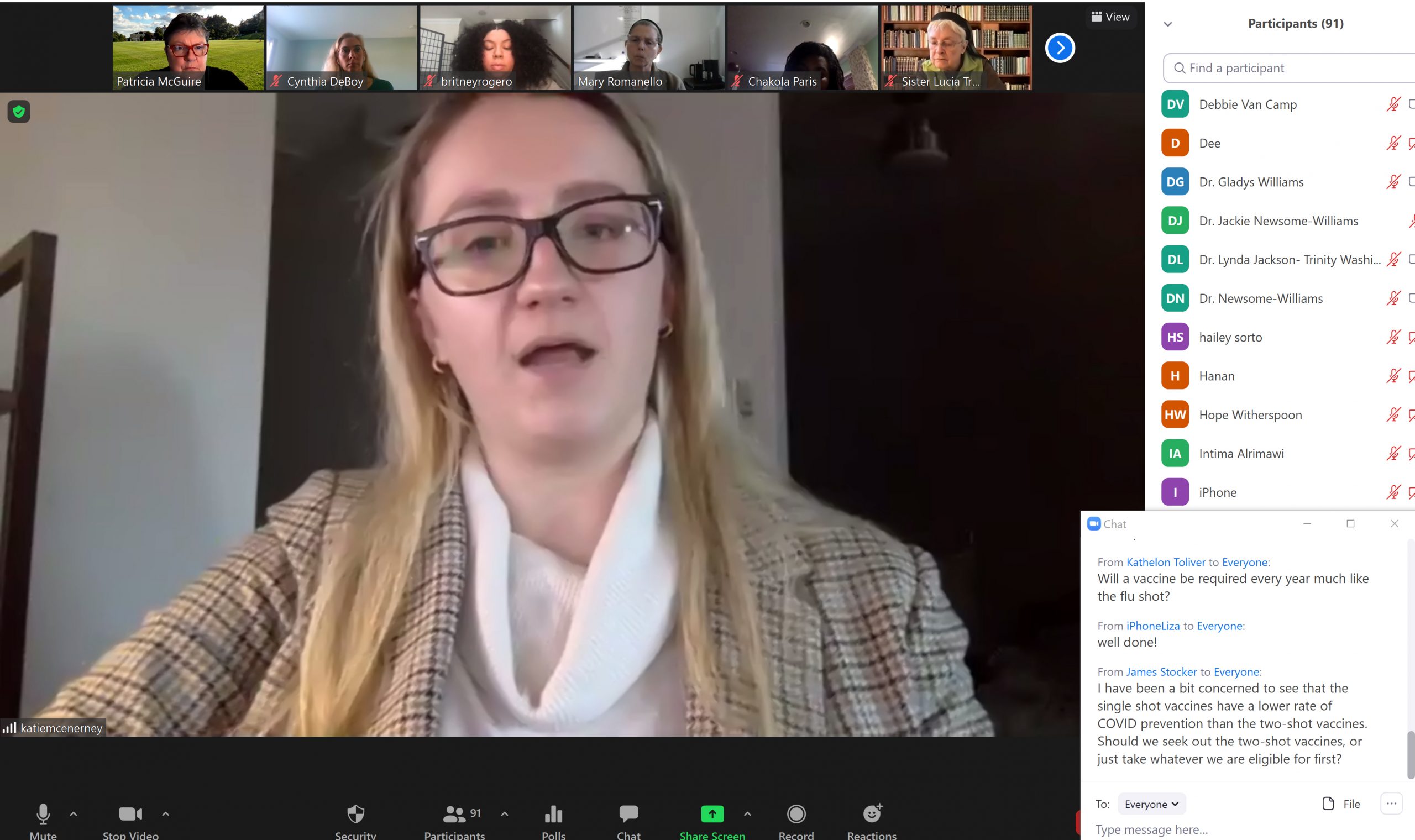
(Microbiology student Katie McEnerney discusses the Pfizer vaccine)
But while acknowledging the pain of history and the suspicions borne on current circumstances, we have to look at the facts, not the rumors; and while understanding history, we have to make progress by creating a new history that is unafraid and affirmative in defeating disease. Changing the charts on racial inequities will not be possible unless and until a substantial proportion of the entire population, including communities of color, receive the vaccine.
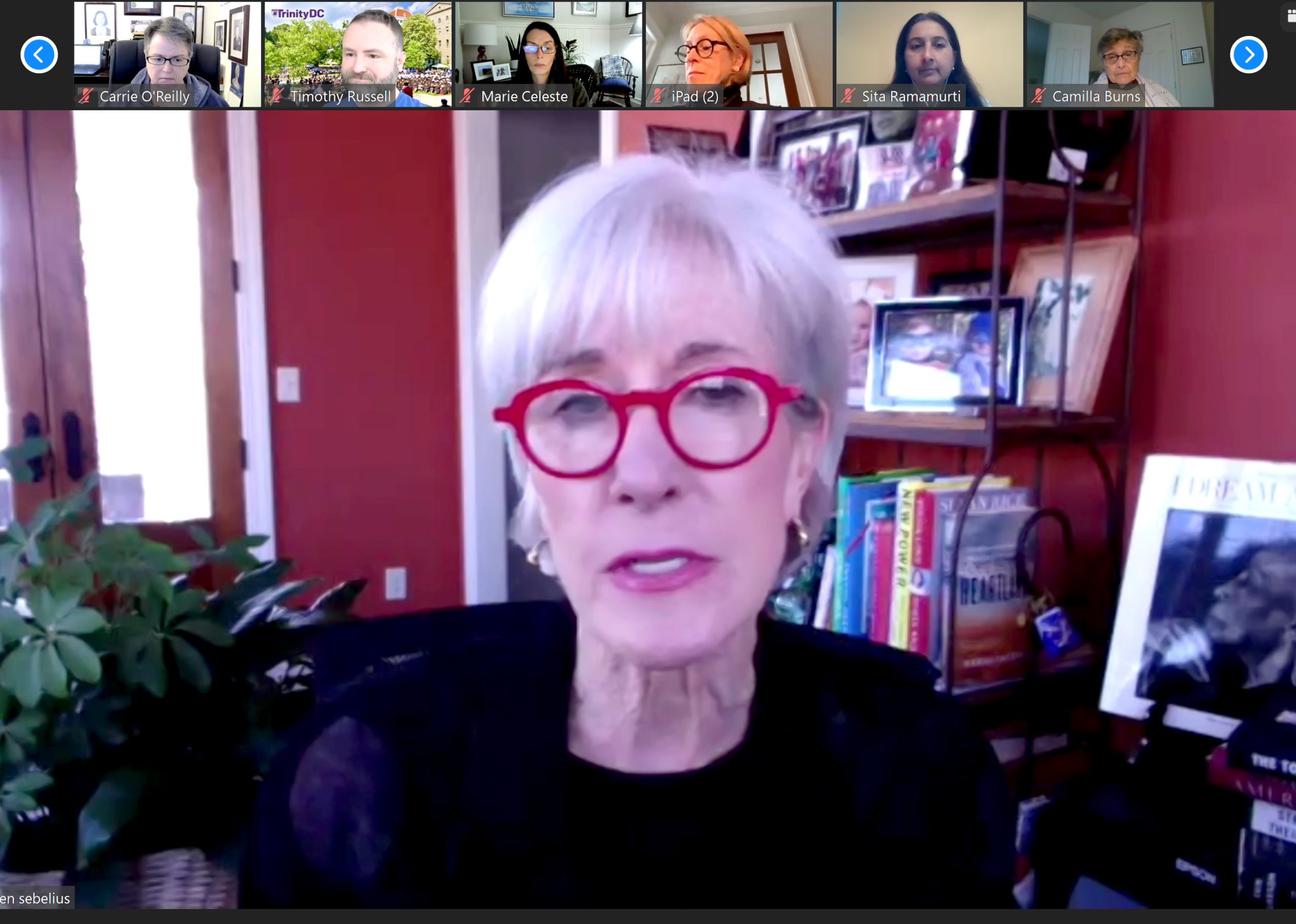 In the last few weeks at Trinity, we have focused on discussions about the Covid-19 vaccines in our weekly “Campus Conversations.” We were so appreciative that our alumna Kathleen Sebelius ’70, former Secretary of Health and Human Services and former Governor of Kansas (photo right), was able to spend an hour with us discussing the vaccine and the Biden Administration’s plans for conquering the virus.
In the last few weeks at Trinity, we have focused on discussions about the Covid-19 vaccines in our weekly “Campus Conversations.” We were so appreciative that our alumna Kathleen Sebelius ’70, former Secretary of Health and Human Services and former Governor of Kansas (photo right), was able to spend an hour with us discussing the vaccine and the Biden Administration’s plans for conquering the virus.
Additionally, we are so grateful to Dr. Cynthia DeBoy and students in her Biology 130 class for their outstanding presentation on the vaccines. Our students were simply outstanding as they explained the various vaccines and how they work, and their presentation really helped to dispel rumors and build confidence. Their full presentation is here:
[pdf-embedder url=”https://discover.trinitydc.edu/president/wp-content/uploads/sites/4/2021/03/Copy-of-BIOL-130-presentation-about-Covid-19-vaccinations-2021-_.pdf” title=”Biology 130 Presentation on Covid-19 Vaccines 2 25 2021″]
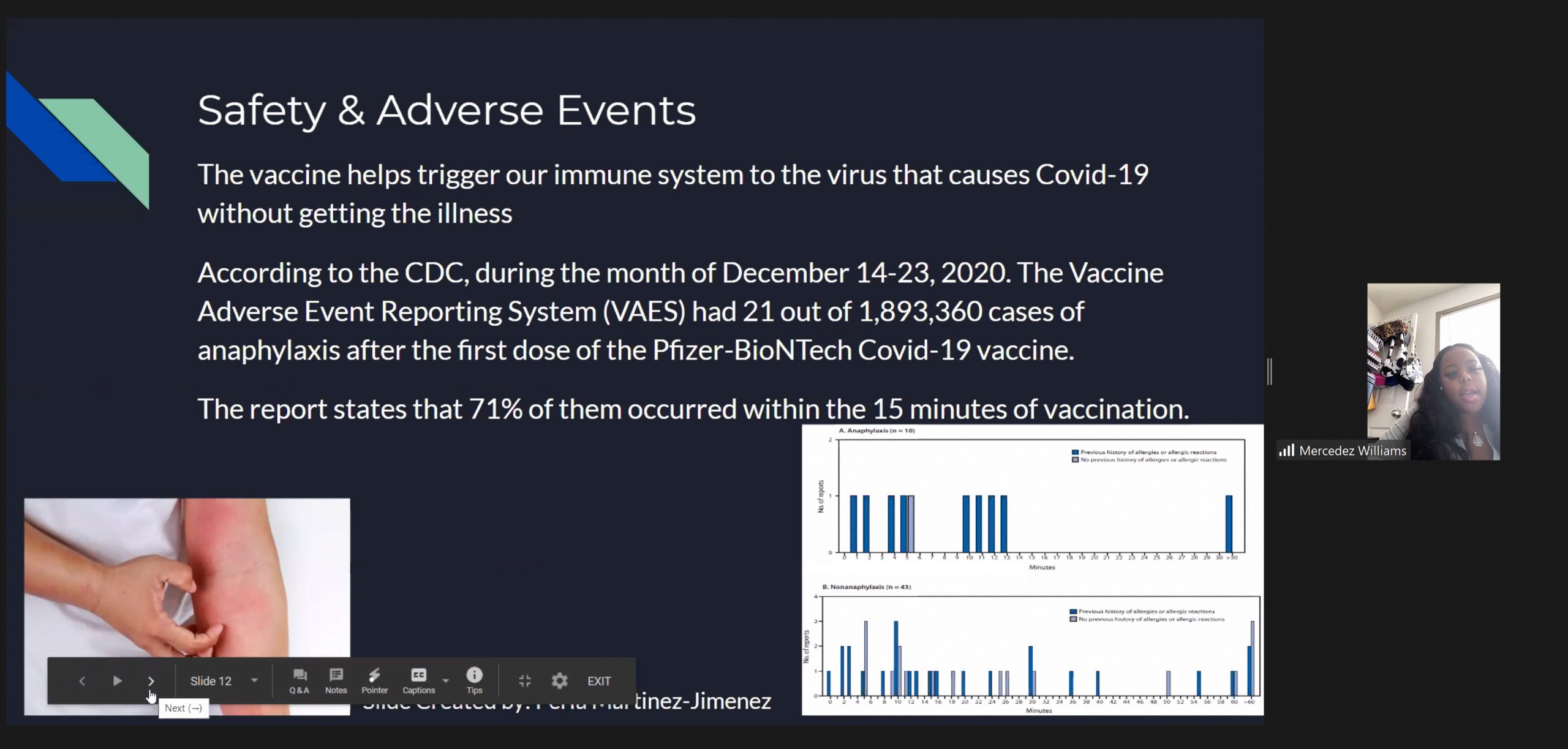 (Mercedez Williams, left, discusses the safety of the vaccines.) Following the presentation, the students answered a number of questions from faculty and students, and their knowledge of the issues and forthright answers were terrific. Some of the questions were about the safety of the vaccines, responding to rumors about possible harm. The answer is that the vaccines are safe, effective and have few side-effects. Other questions were about the relative effectiveness of one vaccine or another, Pfizer or Moderna or Johnson & Johnson. The answers were all the same: get whatever vaccine is available as soon as possible. Britney Rogero (below) presented an infographic to help the Trinity community understand the virus and J&J vaccine and Jennifer Flores-Blanco (also below) answered questions about the Pfizer vaccine while Michelle Sheahan (third photo below) discussed the efficacy data.
(Mercedez Williams, left, discusses the safety of the vaccines.) Following the presentation, the students answered a number of questions from faculty and students, and their knowledge of the issues and forthright answers were terrific. Some of the questions were about the safety of the vaccines, responding to rumors about possible harm. The answer is that the vaccines are safe, effective and have few side-effects. Other questions were about the relative effectiveness of one vaccine or another, Pfizer or Moderna or Johnson & Johnson. The answers were all the same: get whatever vaccine is available as soon as possible. Britney Rogero (below) presented an infographic to help the Trinity community understand the virus and J&J vaccine and Jennifer Flores-Blanco (also below) answered questions about the Pfizer vaccine while Michelle Sheahan (third photo below) discussed the efficacy data.

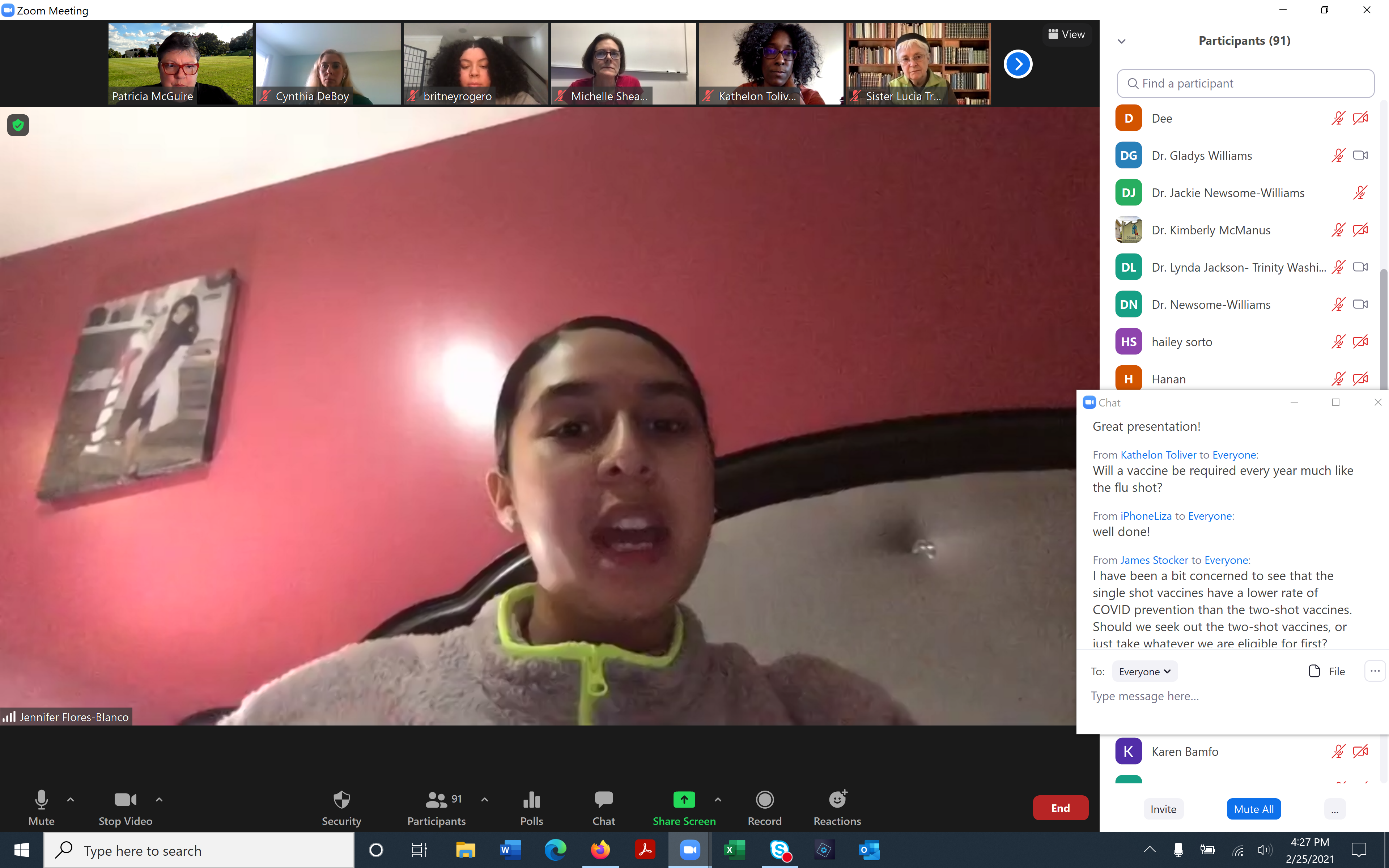
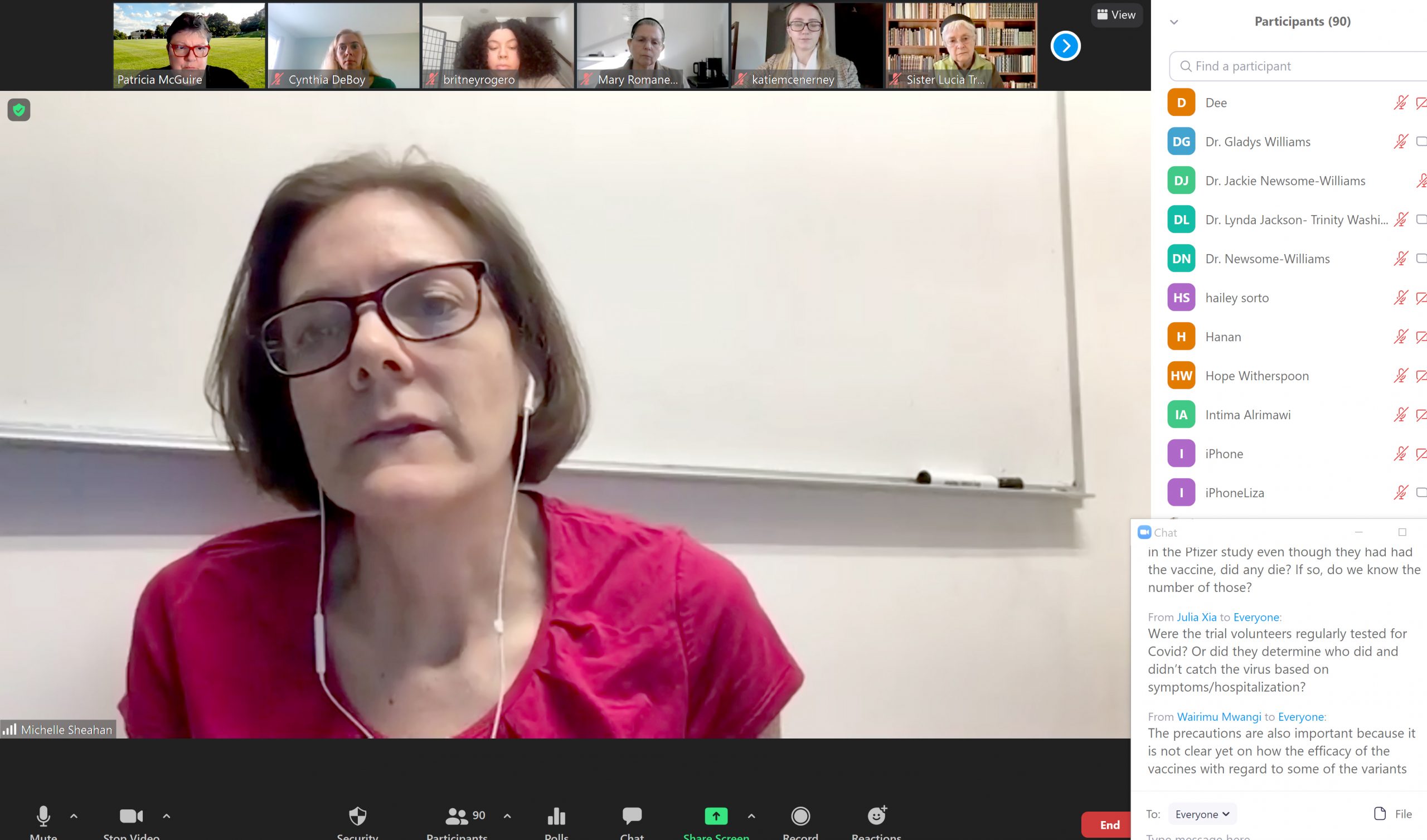
Many thanks to all of the students and to Dr. DeBoy for helping the Trinity community gain knowledge and confidence in the vaccines! With your help, we will surely get to the day when we can meet all together instead of on zoom!
